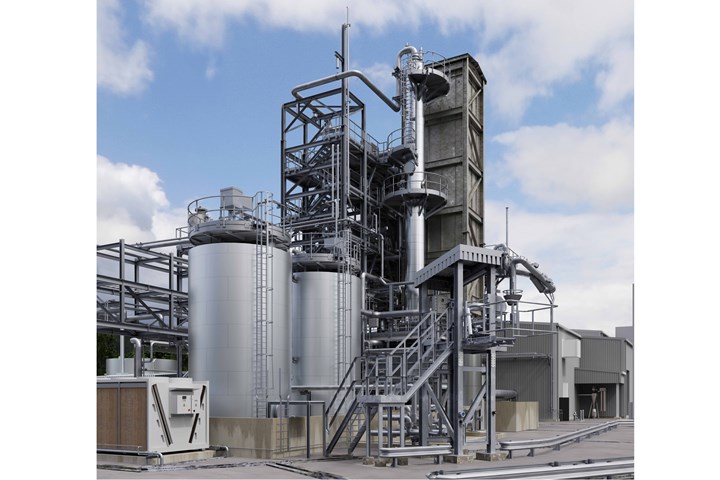Mura Technology Teesside Plant Opens
New facility will use supercritical water in processing plastic into hydrocarbons.
announced the opening of its first commercial-scale HydroPRS facility in Teesside, UK. The HyrdoPRS process uses supercritical steam to break down plastics into useful hydrocarbon feedstock materials. Initial deliveries of hydrocarbon products to Mura’s offtake customers are expected to begin in early 2024.

The main processing structure at Teesside. Photo Credit: Mura Technology
The site has a production capacity of 20,000 tons per year of recycled liquid hydrocarbons, with potential to expand to up to 60,000.
According to the company, the process will be used to convert postconsumer products such as films and trays, providing a recycling path for these materials. Life cycle assessments based on the site at Teesside have shown that the HydroPRS process reduces carbon emissions 80% by diverting plastics from incineration.
“Our HydroPRS process is unlocking a new market for plastic waste, creating value and keeping both plastic and carbon in circularity. The technology works alongside existing mechanical recycling to ensure no plastic types are considered ‘unrecyclable’ and require incineration or landfilling,” says Steve Hahon, Mura Technology CEO.
Mura has been supported by investments from companies across the plastic value chain, including , Dow, , and , alongside funding from UK Research & Innovation’s Smart Sustainable Plastic Packaging Challenge and the government’s Future Fund.
Related Content
-
Circular Plastics From Cyclic Molecules
Macrocycle is pioneering an approach to PET recycling via cyclic oligomers.
-
Scaling Up Sustainable Solutions for Fiber Reinforced Composite Materials
Oak Ridge National Laboratory's Sustainable Manufacturing Technologies Group helps industrial partners tackle the sustainability challenges presented by fiber-reinforced composite materials.
-
Shredding Thin Film: How to Do It Right
While many processors recoil at this task, a little know-how in shredding equipment, processing, and maintenance should add the necessary confidence.





